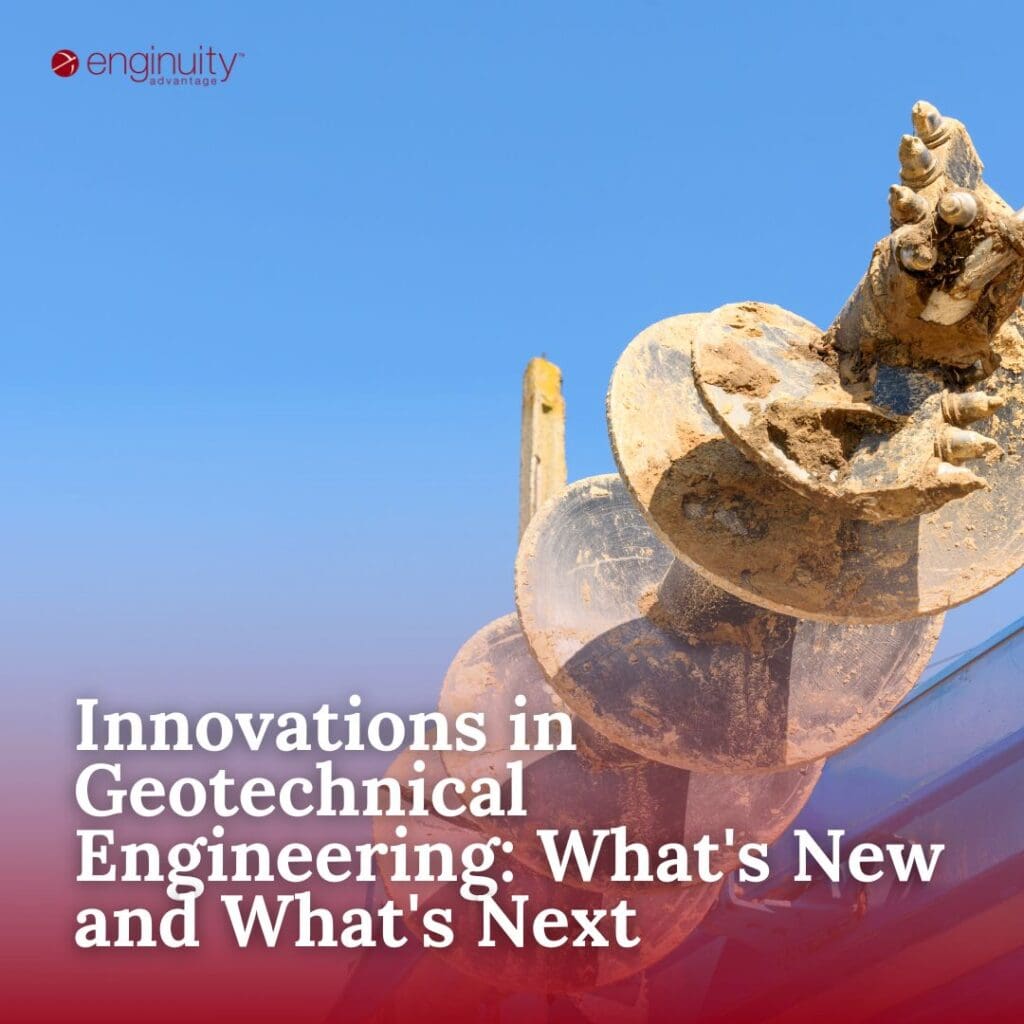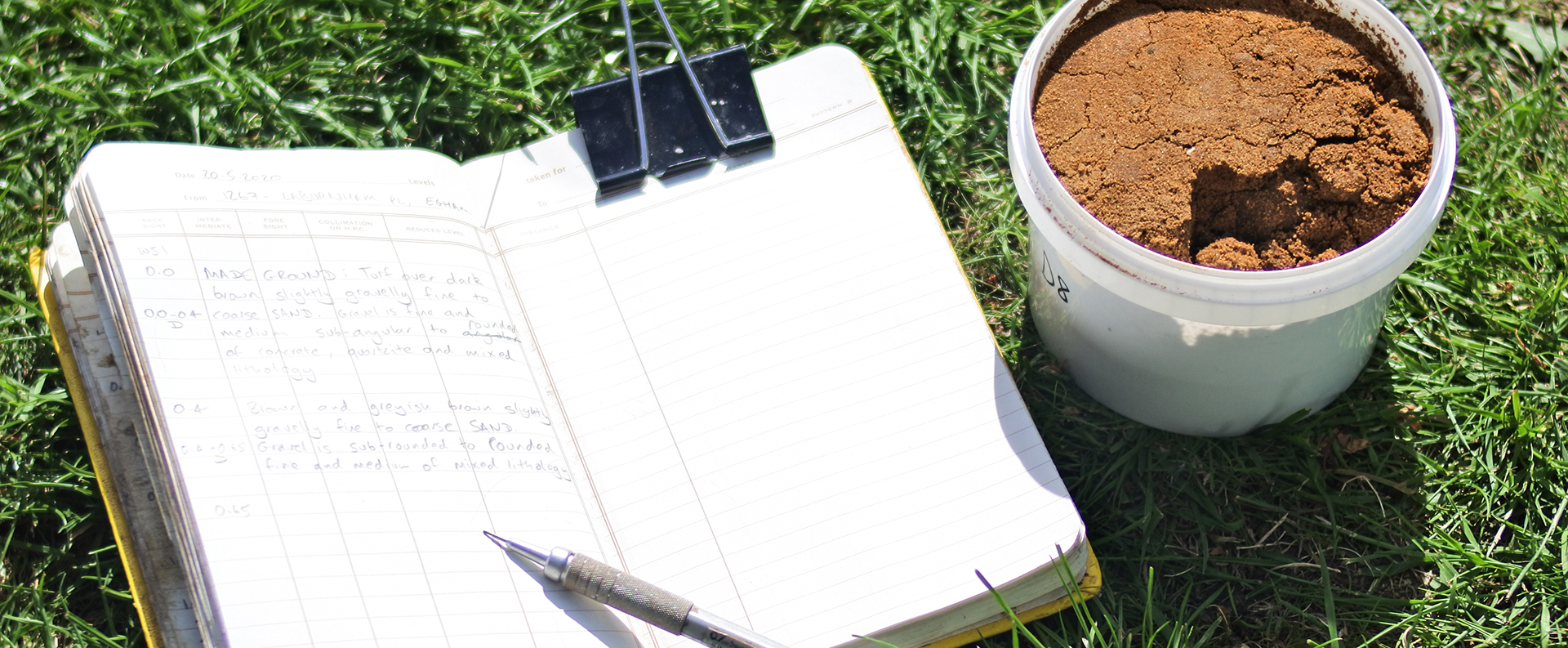Comprehending the Principles: Concerning Geotechnical Engineering in Modern Construction
Comprehending the Principles: Concerning Geotechnical Engineering in Modern Construction
Blog Article
The Value of Geotechnical Engineering in Addressing Ecological Obstacles and Enhancing Building Security
Geotechnical engineering serves as a cornerstone in the junction of environmental stewardship and building security, offering vital insights right into the habits of soil and rock under various problems. By applying calculated website examinations and customized mitigation procedures, geotechnical designers play a crucial duty in guarding both human lives and environmental honesty.

Duty of Geotechnical Engineering
Geotechnical design plays an important duty in the style and construction of facilities by resolving the habits of soil and rock products under numerous conditions. This area of design is essential for comprehending the interaction between frameworks and the ground, that includes figuring out the load-bearing ability of soil, examining security, and forecasting prospective settlement or failure.
Geotechnical designers are in charge of performing site examinations, which include tasting and screening soil and rock to collect information on their physical and chemical properties. This information is crucial for making foundations, maintaining wall surfaces, and other earth-retaining frameworks that guarantee safety and durability. Geotechnical engineering educates the choice of ideal building techniques and products, consequently minimizing dangers linked with soil habits.
Furthermore, the assimilation of geotechnical engineering principles into metropolitan preparation and environmental administration is critical for dealing with difficulties such as ground contamination and groundwater monitoring. By comprehending geotechnical factors, designers can establish lasting solutions that enhance the durability of facilities against natural threats, while also advertising environmental stewardship. Ultimately, the function of geotechnical design is indispensable for accomplishing safe, durable, and eco conscious construction methods.
Soil Disintegration Reduction
Soil erosion presents a significant danger to both environmental stability and framework honesty, affecting roughly 24 billion loads of abundant soil shed annually worldwide. This sensation is aggravated by aspects such as deforestation, urbanization, and inadequate farming methods. Geotechnical design plays a pivotal function in creating reliable dirt erosion mitigation methods that safeguard both the atmosphere and building jobs.
One technique involves the application of disintegration control techniques such as vegetation planting, which supports soil with root systems. In addition, the building and construction of maintaining walls and balconies can properly lower surface drainage and shield at risk areas from erosion. Proper water drainage style is additionally essential; it reduces water buildup and directs excess overflow far from vital frameworks.
In addition, geotechnical designers use soil stabilization methods, such as the application of geotextiles and biodegradable floor coverings, to enhance dirt cohesion and avoid degradation - geotechnical engineer description. Routine monitoring and assessment of erosion-prone websites make it possible for prompt treatments, making certain long-lasting sustainability. By integrating these techniques, geotechnical design not only alleviates the effects of soil disintegration however also adds to the durability of framework versus ecological obstacles, eventually promoting a safer and much more sustainable constructed environment
Groundwater Defense Strategies
Groundwater acts as a vital resource for drinking water, agriculture, and commercial processes, making its defense important for ecological sustainability and public health. Effective groundwater protection approaches are critical in alleviating contamination risks and making sure the durability of this source.

Routine monitoring of groundwater high quality is additionally crucial, enabling early discovery of contamination resources and facilitating prompt remediation efforts. Using innovative innovations, such as geophysical surveys and remote noticing, help in identifying possible hazards to groundwater reserves.
Moreover, public education and stakeholder interaction are vital, fostering area support for groundwater security initiatives. about geotechnical engineering. By integrating regulatory actions, technical improvements, and community participation, we can create an extensive framework that safeguards groundwater resources while advertising sustainable development and building and construction methods
Landslide Risk Monitoring
Landslides position substantial threats to both human security and facilities, making effective risk administration methods essential. Geotechnical design plays an important duty in determining, assessing, and mitigating landslide dangers. An extensive understanding of incline stability, dirt auto mechanics, and hydrology is vital for establishing effective danger monitoring plans.
The first action in landslide threat administration includes complete site investigations, that include geological mapping and soil screening. These investigations assist designers assess the possibility for landslides by determining critical variables such as slope angles, dirt make-up, and water material. Utilizing innovative innovations such as remote Click This Link sensing and geophysical studies can boost the accuracy of these evaluations.
As soon as risks are recognized, suitable mitigation steps can be executed. These may include design options such as maintaining wall surfaces, water drainage systems, and slope stablizing techniques. Furthermore, keeping track of systems should be established to detect signs of ground activity and modifications in water levels, enabling aggressive interventions.

Enhancing Building And Construction Safety
Construction sites commonly offer a myriad of risks that can jeopardize employee safety and security and task stability. Geotechnical engineering plays an important function in improving construction safety by offering necessary insights right into subsurface problems. With extensive soil and rock evaluation, geotechnical engineers can identify possible threats, such as soil instability, groundwater issues, and seismic vulnerabilities, which might jeopardize the security of building activities.
Carrying out geotechnical solutions, such as correct structure layout and the usage of keeping frameworks, reduces these dangers considerably. These remedies not only make certain the security of the structures being developed however also create a more secure working atmosphere for building and Source construction personnel.
Additionally, cultivating a culture of security with training and adherence to established safety and security protocols even more enhances construction website safety and security. By incorporating geotechnical knowledge into the planning and execution phases, construction projects can achieve greater safety criteria, eventually protecting employees and guaranteeing successful job completion.
Final Thought
In final thought, geotechnical design serves as a vital discipline in dealing with environmental difficulties and advertising building security. Via reliable dirt erosion reduction, groundwater protection strategies, and landslide risk management, geotechnical engineers contribute to the development of durable facilities.
Geotechnical design offers as a keystone in the intersection of ecological stewardship and building security, providing critical understandings right into the habits of dirt and rock under numerous conditions. Geotechnical engineering informs the choice of suitable building approaches and products, therefore minimizing threats associated with soil actions.
Geotechnical design plays an essential role in establishing efficient dirt erosion mitigation techniques that secure both the setting and construction jobs.
In addition, geotechnical designers utilize dirt stablizing strategies, such as the application of geotextiles and eco-friendly mats, to boost dirt cohesion and avoid destruction. With comprehensive dirt and rock analysis, geotechnical designers can identify possible risks, such as dirt instability, groundwater issues, and seismic susceptabilities, which may endanger the security of building and construction activities.
Report this page